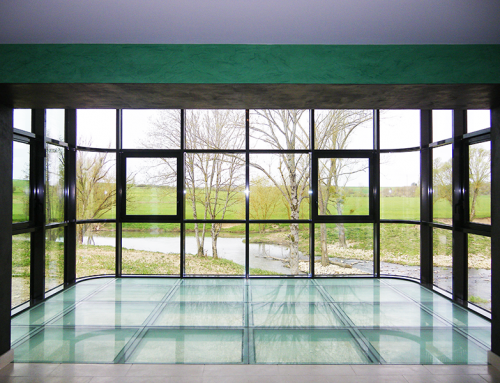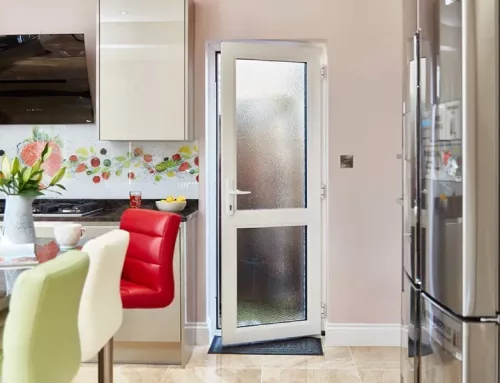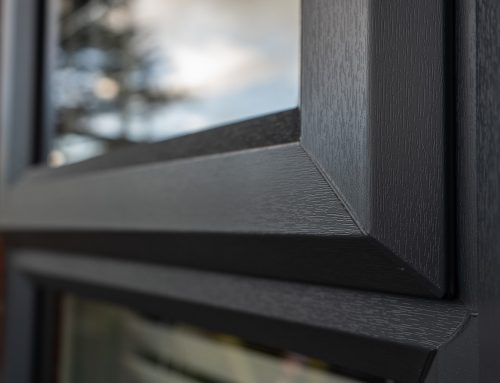The Impact of uPVC Doors and Windows on Indoor Air Quality: Ensuring a Healthy Living Space
Indoor air quality plays a vital role in our overall well-being, as we spend a significant amount of time inside our homes. uPVC (unplasticized polyvinyl chloride) doors and windows not only offer energy efficiency and durability but also contribute to maintaining a healthy living environment. In this article, we will explore the impact of uPVC doors and windows on indoor air quality and how they help ensure a fresh and healthy atmosphere within our homes.
1. Enhanced Insulation and Air Tightness:
uPVC doors and windows provide excellent insulation and air tightness, minimizing the infiltration of outdoor pollutants and allergens into our living spaces. The multi-chambered design of uPVC profiles, combined with weather seals, creates a barrier against drafts and prevents the entry of dust, pollen, and other airborne particles. This helps maintain cleaner indoor air and reduces the risk of respiratory issues or allergies caused by poor air quality.
2. Minimization of Condensation and Mold Growth:
Condensation can lead to the growth of mold and mildew, compromising indoor air quality. uPVC doors and windows offer superior thermal insulation, which helps to reduce condensation on glass surfaces. The thermal barrier created by uPVC profiles minimizes temperature differences between indoor and outdoor environments, reducing the formation of condensation. By controlling condensation, uPVC doors and windows contribute to preventing mold growth and maintaining a healthier indoor environment.
3. Low VOC Emissions:
Volatile Organic Compounds (VOCs) are chemicals commonly found in building materials and furnishings, and they can have detrimental effects on indoor air quality. uPVC doors and windows have low VOC emissions, as they are manufactured using a process that minimizes the use of harmful chemicals. This ensures that uPVC products have a minimal impact on indoor air quality, promoting a healthier living space.
4. Ease of Cleaning and Maintenance:
Maintaining cleanliness is essential for good indoor air quality. uPVC doors and windows are easy to clean, reducing the buildup of dust, dirt, and allergens on surfaces. Regular cleaning with mild soap and water helps remove any particles that may have settled on the frames or glass panes. The low-maintenance nature of uPVC minimizes the presence of allergens and contributes to a cleaner and healthier living environment.
5. Integration with Ventilation Systems:
Proper ventilation is crucial for maintaining optimal indoor air quality. uPVC doors and windows can be easily integrated with various ventilation systems, such as trickle vents or mechanical ventilation, to ensure a constant flow of fresh air. These systems allow for controlled ventilation, filtering out pollutants and exchanging stale air with fresh outdoor air. By providing efficient ventilation options, uPVC doors and windows contribute to maintaining a healthy and breathable living space.
6. Compatibility with Air Purification Systems:
For homeowners who require additional purification of indoor air, uPVC doors and windows are compatible with air purification systems. These systems can be installed to filter and remove pollutants, allergens, and odors from the air within the home. The combination of uPVC doors and windows with air purification systems further enhances indoor air quality, ensuring a healthier environment for residents.
Conclusion:
uPVC doors and windows go beyond energy efficiency and durability by positively impacting indoor air quality. With their enhanced insulation, reduction of condensation and mold growth, low VOC emissions, and ease of cleaning, uPVC doors and windows contribute to a healthier living space. The compatibility with ventilation and air purification systems further enhances air quality, ensuring a fresh and breathable environment for homeowners. By choosing uPVC doors and windows, homeowners can enjoy the benefits of improved indoor air quality, promoting overall well-being and creating a healthier home for themselves and their families.



